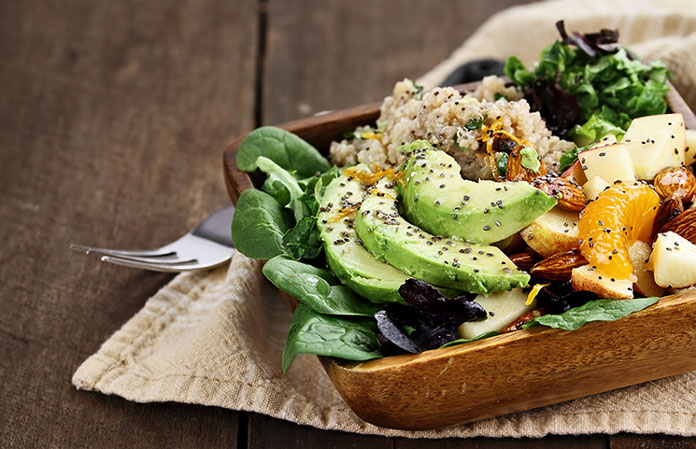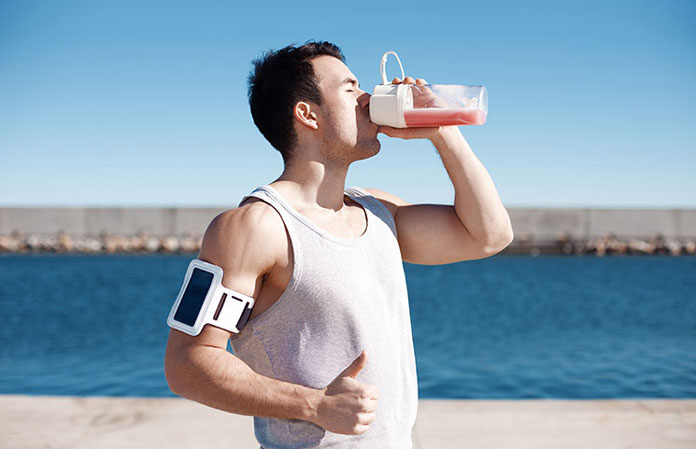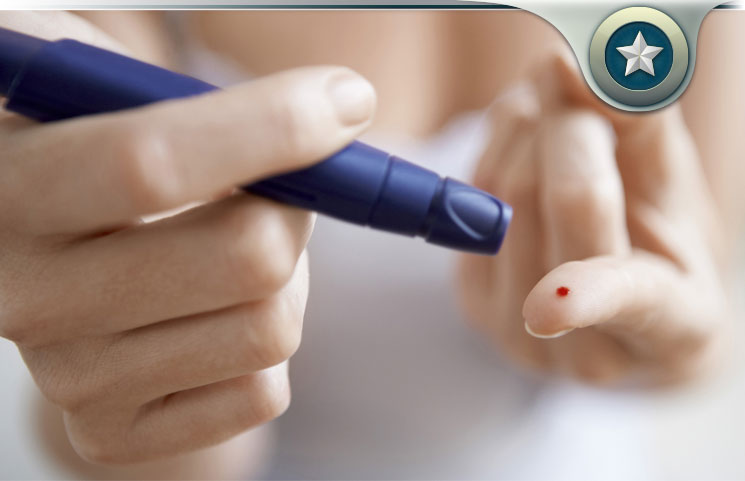12 Easy Ways To Reduce Blood Sugar
Rapid blood sugar increases happen when your blood sugar rises and then drops drastically after you consume food or any other form of content that contained calories for that matter. In the short term, they can lead to hunger as well as lethargy which are some common reasons for your body not being able to operate as well as it should.
Over time, your internal organs may not be adequate tools to lower blood sugar enough; this can cause type 2 diabetes. Diabetes is a growing health issue.
In fact, about 30 million Americans have diabetes, and a quarter of these people don’t really know that they have it. Published Blood sugar increases typically cause your blood vessels to increase in hardness and get narrower, which can cause complications such as a stroke or even a heart attack.
Table of Contents
This book looks at 12 things you can do to decrease the risk of blood sugar spikes.
Have A Low Carb Diet
Carbohydrates (sometimes referred to as carbs) are a primary reason that blood sugar rises. When you consume things such as carbs, they get digested into simpler sugars. These sugars then go into the bloodstream. As the sugar levels in your blood go up, your pancreas starts to releases a hormone that is called insulin, which tells your cells to take in sugar from your blood. This subsequently makes your blood sugar levels to decrease significantly.
Many studies have discussed the fact that consuming a low-carb diet tends to help decrease the risk of drastic blood sugar spikes. Low-carb diets also have the added benefit of helping weight loss, which can additionally reduce blood sugar spikes.
There are many ways to reduce your carb intake, including counting carb
 Consume Less Refined Carbs
Consume Less Refined Carbs
Things known as processed carbs or sometimes even Refined carbs are sugars and refined grains. A few very typical example of refined carbs are table sugar, soda, white rice, white bread, desert, breakfast cereals and candy. These refined carbs have been completely stripped of nearly all their nutrients, fiber, minerals and vitamins.
Refined carbs are commonly said to possess a high glycemic index because they are very easily and quickly digested within the body. This also leads to blood sugar spikes. A huge observational study of about 91,000 women discovered that a diet that is high in high-glycemic-index carbs found a connection to an increase in type 2 diabetes.
The dramatic increase in blood sugar and then the following drop in blood sugar that one may have after consuming high-glycemic-index foods can also lead to an increase in hunger may lead to overeating as well as weight gain.
The glycemic index of the level of carbs can be very different when comparing foods. It’s influenced by a wide array of things.
More often than not, whole-grain foods have a smaller glycemic index, such is the case with most fruits and vegetables.
Decrease The Amount of Sugar you Consume
Most Americans will eat around 88 grams (22 teaspoons) of additional sugar every day. This translates to just about 350 calories. This is occasionally table sugar, but most of it is from things that are processed such as candy, soda, and desert items.
Our bodies have just about no nutritional gain from consuming added sugar such as sucrose or high-fructose corn syrup. These calories are just broken down very easily and cause an immediate increase in blood sugar. This has been shown to be liked to developing insulin resistance.
This is what happens when cells are unable respond to insulin as they are supposed to, this makes the body not able to use insulin as well as it was previously able to.
In 2016, the US Food and Drug Administration (FDA) changed the way foods have to be labeled in the US. Foods now have to display the amount of added sugars they contain in grams and as a percentage of the recommended daily maximum intake.
Rather than just give up sugar entirely, one could opt to consume natural sugar
Keep A Healthy Weight
Currently, two out of three adults in the US are considered to be overweight or obese. Being overweight occasionally makes it harder for the body to properly use insulin and control blood sugar levels, leading to blood sugar increases and a higher risk of aquiring type 2 diabetes.
The exact ways in which it happens are still unclear, but we have a lot of evidence that links obesity to insulin resistance and the development of type 2 diabetes Losing weight, however, has been shown to have drastic improvements in blood sugar control.
In one study, 35 obese people lost an average of 14.5 pounds (6.6 kg) over 12 weeks while they were on a diet of 1,600 calories a day. Their blood sugar dropped by an average of 14%. In another study of people without diabetes, weight loss was found to decrease the incidence of developing type 2 diabetes by 58%.
Have More Exercise In your Life
When one exercises it is common for them to have an increased control over blood sugar spikes because the sensitivity of your cells to the hormone insulin increases. By exercising you also cause your muscles to absorb sugar from your blood much better, so your blood sugar levels will decrease. Having moderate exercise regularly can be directly connected to a decreased risk for spikes in blood sugar. Similar improvements in blood sugar have been found throughout many studies and trials.
Whether you exercise after eating or before could also have an impact on your blood sugar control. Most studies find that preforming moderate exercise before breakfast yields a greater level of control on blood sugar than when you work out after breakfast. Increasing your exercise level can also help you in terms of weight loss, another way to combat blood sugar spikes.
Consume More Fiber
The parts of plants that your body is unable to digest are known as fiber. Soluble fiber and insoluble fiber are the two types of fiber that exist. Soluble fiber is particularly useful at good at helping control blood sugar spikes.
This type of fiber is able to dissolve inside of water and it forms a substance in the gut that is able to slow the absorption of certain types of carbs. This makes it easier for your body to have a steadier cycle in terms of the rise and fall of blood sugar levels. It is also good at reducing your food intake/ appetite because it makes you feel fuller throughout the day.
Drink More Water
Another major cause of blood sugar spikes could lie in the amount of water the average American drinks throughout the day. For the most part, the average person is well-aware of the benefits of a well-hydrated diet.
But the benefits are even more profound than the typical dietician could stress. In fact, an increased diet in water could limit the body’s production of vasopressin, a chemical which forces the kidneys to keep fluid inside and tells the body to refrain from flushing out fluid. Additionally, this chemical is effective at telling the liver to keep more sugar in the bloodstream.
One study in particular substantiated the link between water and limited blood sugars. In the study involving hundreds of males and females alike, the risk of blood sugar spikes significantly increased when a user drank just 16 ounces of water per day. As a result, researchers conclude that, for the most part, increased water consumption is directly correlated with decreased blood sugar.
A study involving nearly 5,000 people in Sweden concluded that an increase to vasopressin levels in the blood was directly correlated to insulin resistance and type two diabetes. Naturally, such a link is monumental for researchers and the average man alike—it means that when we limit the production of vasopressin, we are able to directly lower our risk for developing life-threatening illnesses like diabetes. The way to effectively curb our body’s production of the chemical is through the increased consumption of H20.
In order to reap the benefits of the body most effectively, consumers should be sure to increase their water intake. Most importantly, water intake should be adjusted in order to better fit the activity currently being undertaken. Especially when exercising or eating, a well-balanced water intake could be essential to a well-functioning body.

Try Increasing Vinegar In the Diet
One small change to the average diet which could have a major effect on blood sugar levels is the prospect of increased vinegar. In particular, apple cider vinegar is incredibly effective at providing a variety of major health benefits. Just to name a few, the wonder-drink can be linked to cholesterol reductions, weight loss, as well as significant blood sugar control! Studies conducted over several years have made the benefits of vinegar amply available to the average consumer, as well as hundreds of researchers all over the world. Specifically, the product has been shown to increase insulin response, reducing the possibility of a large spike in blood sugar levels.
One study corroborated the claim that vinegar in food can reduce blood sugar in test subjects who had eaten less than fifty carbs in their meal. Additionally, this research concluded that stronger and more pure vinegar led to even further reduced blood sugar levels in participants. A separate test found another major benefit to vinegar.
The test concluded that insulin sensitivity of participants was increased by an average of 25% after a healthy ingestion of vinegar, even after the participants had consumed a significant amount of carbs.
The mitigating components of a vinegar ingestion are tough to ignore. An even more important distinction to note, however, is that the average American would not have to add a significant amount to their diet in order to reap the health benefits of vinegar. Just a small amount of vinegar added with each meal could turn into a major health factor, mitigating the harmful effects of high blood sugar and reforming the heroic insulin within a consumer’s blood.
A Japanese study corroborated what could be considered the most exciting prospect of vinegar when it comes to the reduction of spikes in blood sugar. This multi-party and peer-reviewed study found that the glycemic index of a meal with pickled—vinegar rich—foods was significantly lower than the meal without the delicious vinegar additives.
A person looking to reap the benefits of lowered blood sugar should seriously consider adding a healthy dose of vinegar to their diet. While not majorly changing the way the diet is structured, vinegar has been hailed in the scientific community as yet another major options available to the growing amount of patients with a desire to lower their blood sugar levels.
Try Minerals For Blood Sugar regulation
Two minerals, chromium and magnesium, have been linked to some particularly positive effects, especially when it comes to the amounts of sugar in the blood.
Chromium
Although large amounts of chromium are not typically recommended for consumption, small amounts of the mineral could be very effective in reducing blood sugar spikes. Studies conducted all over the world have lent weight to the claim that choice amounts of chromium can help blood cells to more effectively absorb sugar.
However, not all is set in stone when it comes to the overall benefits of chromium. While one study found that men given 75 grams of bread with chromium exhibited blood sugar levels 20% lower than men given 75 grams without chromium, several studies shed doubt on the hypothesis, exerting that evidence that there is a link between chromium and reduced blood sugar levels is sketchy at best, and not representative of a consistent medicinal trend.
Despite the minor disagreements within the scientific community, consumers should not be quick to disregard the benefits of a diet rich in healthy amounts of chromium. Foods like eggs, shellfish, and tomatoes are prime choices for a man looking to lower the amount of sugar in his blood via an unconventional but valid method.
Magnesium
Chromium is not alone in the list of minerals known to help with blood sugar problems. One study found that insulin sensitivity typically increased in sample users given 600 mg doses of magnesium. However, the fiat to this particular study is that the consumers were also given advice on revising their lifestyle to fit with the paradigm of the goal they seek to reach.
Another study centering on the benefits of magnesium found that combining chromium and magnesium could magnify the effects the two minerals have on the blood, even more effectively lowering blood sugar levels, reducing the possibility of a spike, and increasing insulin sensitivity within the blood.
Diets rife with almonds, avocados, and nuts can be another mineral-based path to blood sugar reduction that so many patients desperately seek.
Spices For Blood Sugar Reduction
Eastern medicine has always had a strong tradition in the use of spices for the control of several important, and sometimes dangerous, bodily functions.
In particular, the ways of alternative medicine have revealed that, for many patients, a transition into a diet rich in cinnamon and fenugreek could be incredibly effective at limiting blood sugar spikes.
Cinnamon
Similar to some of the other benefits listed in this guide, the medicinal benefits of cinnamon are somewhat contested within the scientific community. While the debate rages on, some key studies have warranted claims that cinnamon can increase insulin production and lower the risk of blood sugar spikes, particularly after the consumer has finished a meal rich in carbs.
In a study involving 14 healthy people of varying backgrounds, a conclusion became evident that just six grams of cinnamon can significantly reduce the occurrence of spikes in blood sugar. Despite this particular thesis, some studies have concluded that there is very little effect on blood sugar levels directly attributable to the ingestion of cinnamon.
A separate analysis found that, in several top-tier studies, there had been no established significant decrease in blood sugar levels after cinnamon was ingested by the participants.
One important distinction consumers should make is between the two different types of cinnamon, as well as how these versions of the popular spice can and should be used in a restorative setting. Cassia cinnamon is the most common type of the spice. Available in supermarkets all over the world, this is the typical type of cinnamon accessible to the average consumer.
If a health nut is committed enough, however, the other option is Ceylon cinnamon. This type of cinnamon is much more expensive, but is generally considered richer in key minerals and restorative antioxidants.
An important note to make is that Cassia intake should be limited based on the consumer’s country’s guidelines and recommendations. Because it can contain a host of a somewhat harmful substance, coumarin, intake should be closely monitored.
Fenugreek
Though the small plant is endowed with several different anatomical parts, the seeds are the main focus of Fenugreek’s application in alternative medicine, particularly when it comes to the plant’s blood sugar reducing effects. The fiber-heavy seeds are effective at preventing blood sugar spikes. As they slow digestive processes in the body, fenugreek seeds apply a host of benefits to blood sugar.
Despite the conventional stock placed in the fenugreek seeds, other parts of the plant are currently being researched for their potentially astonishing effects on the presence of sugar within the blood. One study found that powdered fenugreek leaves lowered blood sugar levels in the test group by a whopping 13.4%.
Additionally, a review of ten studies correlated the ingestion of fenugreek with a quickened reduction of blood sugar levels. While it could be used as a spice in normal foods, the strong taste typically lends itself to a supplement-type ingestion, particularly from those who are most serious about increasing intake of fenugreek in their diets.
Berberine Usage
Berberine is a native chemical to hundreds of plants all over the world. Despite its roots in traditional Chinese medicine, the modern era has seen a significant amount of research devoted to discovering the marveling benefits possible from an increased ingestion of the mysterious chemical. In particular, some users have experienced a reduction to their cholesterol, weight, and blood sugar levels.
The chemical is especially effective in these respects because it seems as though it is able to reduce the amount of sugar produced in the liver while simultaneously increasing insulin sensitivity all over the body.
One research study found that patients with type two diabetes saw a reduction in blood sugar spikes after meals when they had ingested berberine before the meal. This is not unrefuted, however. An opposing study concluded that the berberine can provide its users with a host of uncomfortable side effects including diarrhea, constipation, and gas. Potential users should consult their physician before integrating this still-new drug to their daily routine.
Lifestyle Factors
One of the most effective ways to lower blood sugar levels doesn’t even surround a complicated diet change or a major intake of a new mineral. In fact, the most important thing a reader can do to lower blood sugar levels is to make a few healthy changes to their overall lifestyle.
Because our health has always been so closely linked to the habits and vices we choose to embrace, the medical community is becoming increasingly enamored with the idea of using lifestyle changes and advice to treat major health issues, including blood sugar spikes!
Reduce Stress
The detriments of a stressful lifestyle are no mystery to the scientific world. Namely, headaches and increased blood pressure can directly result from a stressful daily routine. Additionally, a physical effect of stress is the increase to blood sugar which typically accompanies it.
When the body becomes stressed, it starts to release energy in the form of sugar into the blood in order to energize and motivate you to get out of your funk. Additionally, a stress-induced form of eating can result in an overly-sugary diet, which is never good for blood sugar.
These claims were best corroborated in an Italian study which implicated work-related stress with an increase to blood sugar. Additionally, the direct addressing of stress is incredibly effective at curbing the effects of increased blood sugar. One study with nursing students fund that yoga, a stress-reducing activity, directly lowered blood sugar spikes after a large meal.

Moderate Sleep
Striking a balance in sleep is an essential component of maintaining healthy blood sugar levels. Too little sleep has been linked to poor blood sugar control, while too much sleep yielded a similarly disastrous effect on the participants of numerous studies.
Even a few bad nights of sleep can have dangerous effects on the blood sugar, causing it to rise rapidly while the body tries to compensate for its lack of resting time with an increased production of energizing sugar in the blood. For the best results, try to get between 6.5 and 7.4 hours of sleep per night.
Moderate Alcohol Usage
Alcohol consumption is likely one of the most direct effects on blood sugar levels included in this guide. It is no secret that alcohol is high in sugar—most drinks include around 30 grams per serving! Just as additions of sugary content to food can spike the blood sugar, high consumption of the devil’s drink can be disastrous for blood sugar levels within the body.
Additionally, a healthy person should recognize that most drinks add very little positive substances to the body, only offering consumers with the dangerous effects of an overly-sugary diet.
Extended drinking habits present the most clear and present danger to the average user of alcohol. One study directly linked prolonged alcohol consumption to a decrease in insulin production, as well as the development of type two diabetes.
Controlling alcohol consumption, however, could actually help to lower the risk of the eventual development of diabetes. What’s more, one study concluded that moderate alcohol usage with meals can decrease the probability of blood sugar spikes by nearly 37%! Moderation is absolutely key to the most effective use of alcohol to mitigate the harmful effects of blood sugar increases.
Wrapping Up
The most important strategy for preventing blood sugar increases and unhealthy blood sugar levels don’t even have to involve expensive drugs or prolonged treatment. Instead, a combination of dietary changes and lifestyle choices could have a major effect on blood sugar levels.
As the medical industry starts to recognize the benefits to lifestyle-based forms of treatment, it has become more evident that a healthy diet of moderation, a non-stressful lifestyle, as well as a good amount of sleep, is the best way to make sure that you never experiences the dangerous effects of blood sugar spikes and insulin insensitivity.









